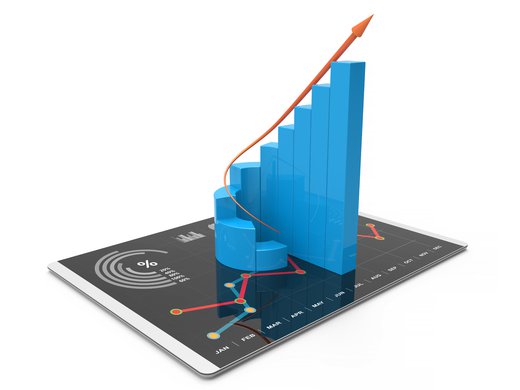The digital transformation is creating a new kind of economy – a “data-driven economy” – powered by the data generated by the myriad daily routines of digitally connected individuals and machines. The ubiquitous devices that capture this data include not only computers and smartphones connected to the internet and social media platforms, but also fitness trackers, security cameras in buildings and surveillance satellites, sensors in pipelines and chips in smart equipment of all sorts, from cars to tractors to refrigerators. The spread of these devices enables the “datafication” of virtually any aspect of human social, political and economic activity — with ubiquitous monitoring, it is only a modest exaggeration to say if it moves, it’s measured. And because it is cheaper to store than to systematically process and delete, data is being accumulated in amounts that are now genuinely astronomical.
To date, the focus of analysis has been in areas related to personal use of the internet. However, the growth of data is now truly exploding in the Internet of Things (IoT) – machines talking to machines. IoT data recently surpassed personal data and is soaring above it — the latest “hockey stick phenomenon.” The IoT encompasses pretty much all sectors.
Data Is Everywhere Except in Economic Statistics
The economic reality of data is hardly being measured. Robert Solow famously remarked in 1987 that, “you can see the computer age everywhere but in the productivity numbers.” Today, we can see the digital transformation everywhere but in the national accounts, the productivity numbers and our trade statistics. This blind spot has implications for our understanding of how big and dynamic our economy really is. For example, “free” internet services and the gains in efficiency at the household level from online shopping are not being factored into national output statistics or estimates of consumer benefits. Our statistics therefore understate real growth. By the same token, the national statistics necessarily understate productivity and the gap between productivity and wages, and overstate the employment elasticity of real GDP (the number of jobs created for a given amount of real GDP growth).
The value of data does show up in some places — specifically, in the intangible capital of data-driven firms. Firms such as Google, Facebook and Amazon that have leveraged their access to massive amounts of data owe much of their market cap to the value that the market assigns to data. These are the relatively mature areas of the data-driven economy — internet search, social media and e-commerce.
Capture the Data, Own the Sector
The value of IoT data is still being worked out — we are in the discovery stage. Firms realize they have something that might be of great value but do not necessarily see how to monetize — or weaponize — it. Accordingly, informed observers demand “show me the money,” and right now many firms can’t. But this will change. The market economy is a search engine for economic opportunity. For example, Vancouver-based cleantech company Semios, whose core business is using pheromones for better pest control, also started measuring environmental conditions such as moisture levels in crops and, through the collection of IoT microdata, has discovered that they can develop farm-specific strategies to help farmers increase yields.
All it takes in any sector is one firm to work the problem and find the answer. And that firm stands to become the next superstar firm in its segment.
The emergent “mobility services” sector acts as a case study. The contenders include auto manufacturers (GM subsidiary Cruise Automation or Elon Musk’s Tesla); internet services (Google, through its spinoff Waymo, or China’s Baidu); ride-share companies (Uber and Lyft); and rental fleet companies (Enterprise or Hertz). Similar contests are emerging or will emerge in areas ranging from smart cities, to health care, to smart agricultural implements, to the cluster of activities surrounding cleantech.
The Economics of the Data-Driven Economy
As it is also a truism that we don’t manage what we don’t measure, understanding the economics of the data-driven economy is important for public policy and corporate strategies alike. This economy has a number of important features:
- Pervasive information asymmetry: This asymmetry is apparent between human and machine artificial intelligence (AI), between companies that control data pipelines and those that do not, and between countries that have the capacity to mobilize and monetize data and those that do not. Information asymmetry leads to market failure. This asymmetry is likely to pervade as the data-driven economy develops. And, in turn, policy will react. CEOs will get called on the carpet, as Facebook’s Mark Zuckerberg found out.
- The industrialization of learning through AI: This process is accelerating the pace of change; what happened in decades in the preceding era of the knowledge-based economy could instead happen in years.
- Accelerated change shortens the time horizon for recouping investments. Shortening the time horizon shrinks the pool of investments that can hurdle the conventional risk-return metrics established for commercial viability of a project. By the same token, it expands the pool of investments that require public sector risk sharing to go forward.
- AI will also reset the value of human capital, because it will enable the production of an arbitrarily large amount of “machine knowledge capital,” which competes directly with human capital just as robotic work competes with manual labour. Canada’s society is organized around human capital and the advent of super-abundant machine knowledge capital will affect the returns to human capital and, by extension, the serviceability of the debt acquired through investing in human capital.
- “Winner-take-most” economics and the proliferation of superstar firms: While this feature was already seen in the knowledge-based era — where an initial quality advantage, coupled with very steep economies of scale and powerful network externalities, enables a firm to achieve market dominance — this effect promises to be still more pronounced in the data-driven economy. This feature reflects the fact that in the knowledge-based economy, the essential capital was intellectual property, which is revealed publicly in patent filings and can be “worked around.” It is not possible to “work around” the lack of data to train AI and thus, without data, it is substantially more difficult to challenge incumbent firms. Similarly, new competition policy disciplines — including on mergers and acquisition-type foreign direct investment aimed at start-up competitors — are required.
- Emerging forms of trade and exchange: The value of new forms of trade is not captured by traditional economic accounting systems. Alongside well-understood digital and digitally enabled trade through “cloud” services and e-commerce models such as Amazon, these new forms include:
- a barter-style offer of “free” internet services that generates benefits for households in exchange for the households’ data, which is monetized by its use as the essential knowledge capital for the data-driven economy;
- household-to-household trade mediated by digital firms (such as AirBnB or Uber), which raises new issues for regulation and taxation; and
- household-to-business digitally mediated trade (for example, Fiverr or Upwork), which makes working for foreign companies from home as easy for individuals as working for domestic companies.
- Systemic risks due to vulnerabilities in the information infrastructure: These risks have been demonstrated by massive leaks of private data, such as the Equifax leak that compromised individuals’ consumer credit files. Risk is also present in the pervasive surveillance that threatens democratic principles of privacy and in cyber attacks on the digital infrastructure itself. New regimes to mitigate this risk are being implemented, such as the European Union’s General Data Protection Regulation.
The International Context
The asymmetries of the data-driven economy create very different national interests for the major players, which are fostering what might be termed “digital trade wars." The United States, which has first-mover advantages, is insisting that data must be free to flow across borders and is moving to dismiss net neutrality, which would entrench the advantages of its incumbent superstar firms that dominate the cloud and the web. China, which has the potential to achieve competitive status in AI because of its large domestic economy and rapid assimilation of digital technology, has erected its “Great Firewall,” behind which it is grooming its own national champions. The European Union is focusing primarily on its defensive interests, regulating on privacy through its General Data Protection Regulation. The small open economies — Canada included — are searching for digital economy strategies to ensure they have a firm foothold in the data-driven economy. One group that has already formed is the Digital Seven, or D7, which focuses on e-government and open data issues.
Conclusions
The data-driven economy is in its early years but evolving rapidly. It remains unclear how fundamentally new capabilities such as AI should be regulated, and by extension, how the policies that govern access to and use of the data that trains it should be framed. This will be a generational task and perhaps the most important area for policy focus in the coming years. This means the future regulatory environment is particularly uncertain at the present.
At the same time, the accelerated pace of technological change shortens the time horizon for recoupment of investment.
In the context of the emerging data-driven economy, which features “winner take most” economics, the heightening of risk due to uncertainties about the future regulatory environment and the accelerated pace of technological change has important implications for entrepreneurs: they face a structural increase in the value of the “real option” of waiting for more information before committing to investment but also a heightened risk of deferring investments needed to capture and defend market share.
These considerations suggest that the pool of investments that the private sector will take on has shrunk (at least for non-superstar CEOs) and by the same token the pool of investments facing society that require public sector risk sharing to go forward has expanded. Public policy makers and CEOs need to recognize this and create the risk-sharing framework that will unlock the investment needed to own the podium in the data-driven economy.




